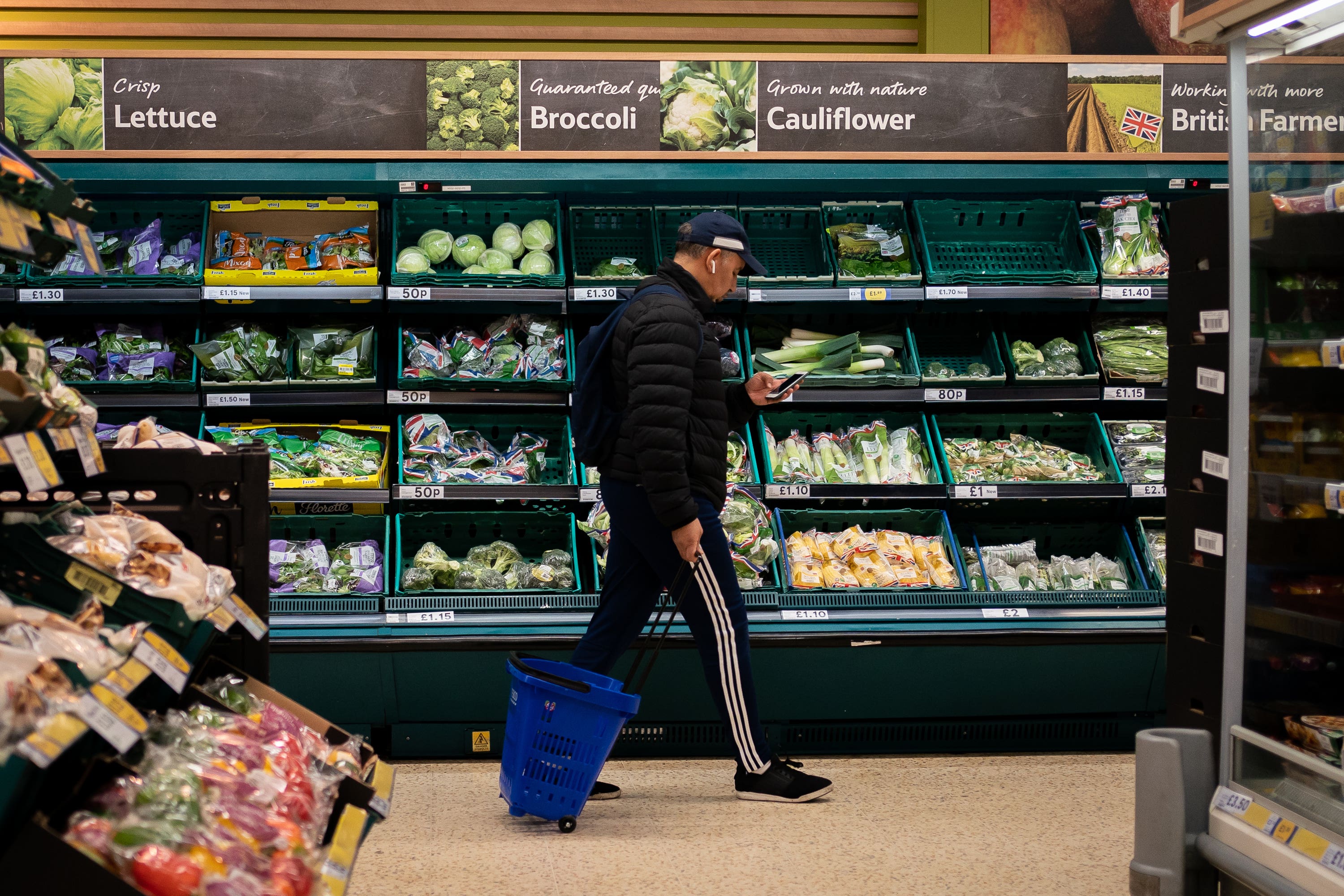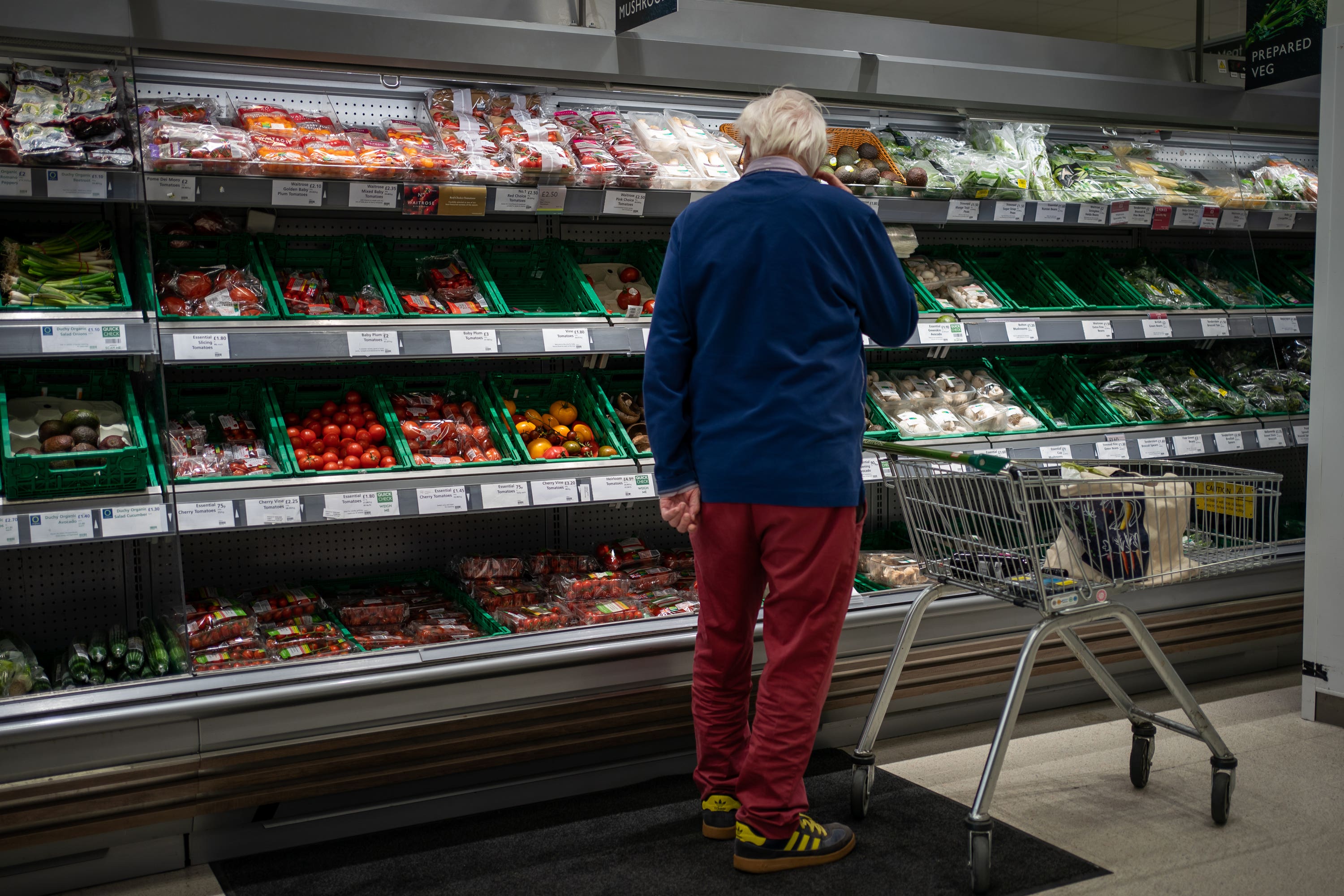UK inflation: Why are food prices rising so much?
A consumer expert has warned that families will have less food on their tables as the cost of food rises
Your support helps us to tell the story
From reproductive rights to climate change to Big Tech, The Independent is on the ground when the story is developing. Whether it's investigating the financials of Elon Musk's pro-Trump PAC or producing our latest documentary, 'The A Word', which shines a light on the American women fighting for reproductive rights, we know how important it is to parse out the facts from the messaging.
At such a critical moment in US history, we need reporters on the ground. Your donation allows us to keep sending journalists to speak to both sides of the story.
The Independent is trusted by Americans across the entire political spectrum. And unlike many other quality news outlets, we choose not to lock Americans out of our reporting and analysis with paywalls. We believe quality journalism should be available to everyone, paid for by those who can afford it.
Your support makes all the difference.Soaring food and drinks prices kept UK inflation in double-figures last month and continue to weigh hard on household budgets.
Overall shop inflation eased back slightly from record highs in April as spring discounts at fashion and furniture stores meant wider retail inflation slowed.
But food prices increased to 15.7 per cent, the highest on record, during the same period to continue pressure on household budgets, according to the latest BRC-NielsenIQ shop price index.
The new figures reported shop prices were 8.8 per cent higher in April compared to the same month last year, easing slightly from 8.9 per cent in March. It came as non-food stores recorded inflation of 5.5 per cent for the month, slipping from 5.9 cent in March as shops reduced prices in a bid to attract customers.
This fall offset the jump in food costs to 15.7 per cent from 15 per cent in March.
Fresh food prices increased by a record 17.8 per cent year-on-year for April, while the price of tinned goods and other store-cupboard items, increased 12.9 per cent.
Helen Dickinson, chief executive of the British Retail Consortium (BRC), said: “The knock-on effect from increased production and packaging costs meant that ready meals became more expensive and coffee prices were also up due to the high cost of coffee beans, as well as key producer nations exporting less.
“Meanwhile, the price of butter and vegetable oils started to come down as retailers passed on cost savings from further up the supply chain.”
Ms Dickinson added that shoppers “should start to see food prices come down in the coming months” amid reductions in wholesale prices and other costs.
Tom Church, consumer expert and founder of LatestDeals.co.uk said inflation will result in families have less food on the table.
“When will supermarket price hikes stop? Families are being squeezed on all sides and ultimately it means less or worse food on the table. Blame is being passed around like a hot potato: supplier costs, animal feed, fuel costs, interest rates, Ukraine,” Mr Church told The Independent.
“This is being made worse for the most in need by recent changes to Sainsbury’s Nectar card and Tesco Clubcard. Go into any store and you’ll now see the ‘normal’ price, and a special price if you have the loyalty card. For vulnerable shoppers unable to use complicated smartphone apps for whatever reason, they may be stuck with higher in-store prices and fewer discounts.”
Karen Betts, chief executive of the Food and Drink Federation, said earlier this year: “The increased costs of ingredients, energy, packaging and the movement of goods in and out of the UK alongside the relative weakness of the pound have only made the situation worse for UK manufacturers.”

Fruit has seen big price rises, while the UK's apple-growing industry is under severe threat, with Brexit being blamed as one of the main reasons for its rapid decline.
The sector is struggling with a number of issues, including a shortage of workers - made worse since the UK's exit from the European Union - as well as high energy costs, and low returns from the supermarkets that buy their produce.
We sent a reporter to do his own grocery shop in April 2022. Below is how the prices changed in just one year.
Pasta – up 26%
Pasta is among some of the items seeing the highest price increase, going up by 19 per cent in a year from 75p for a 500g packet to £0.95. The cost is still shy of £1 but, pasta, widely regarded as a cheaper meal option is becoming relatively costly.
Milk – up 19%
On 1 April, the price of a four-pint carton of semi-skimmed milk was £1.30; however in a year it has shot up 19 per cent. Dairy products are among some of the items hardest hit by food inflation.
Waitrose, which has seen the cost of cheese go up in its stores, has said no one is exempt from the impact of inflation.
Dragon Welsh Mature Cheddar 180g at Asda, increased from £1 in the three months to the end of March last year to £1.80 across the same period this year – an 80 per cent hike year on year.
Butter – up 37%
A 400g packet of butter saw one of the largest price increases in the last year, going from £2.55 in our shop in April and rising to £3.50 this year.
With pressures on cooking oil due to the war in Ukraine, butter prices could continue to increase.
Bananas – down 28%
A bunch of four bananas saw a noticeable dip over 12 months, dropping 28 per cent from £1 for 4 bananas to £0.72 this year.
Eggs – up 27%
A six-pack of medium-sized Tesco eggs has also increased over the year, going from £1.10 in April to £1.40 this year.
The poultry sector was hit by shortages toward the end of 2022 and early 2023 brought on by supply chain issues.

Cereal – down 17%
Shoppers will be glad to know that some items on our grocery list went down since last year.
One of these was cereal. Nesquik (375g) was £2.30 for a box in April, dropping to £1.99 this year – a 17 per cent reduction.
Bread – up 26%
In our shop an 800g loaf of Hovis brown bread dropped in price from £1.20 in April to £1.45 this year – a 26 per cent increase.
The war in Ukraine continues to limit the export of grain will have contributed to higher prices.
Beef mince –up 5%
The price of beef mince has increased 5 per cent in a year going from £2.85 in April 2022 to £3.00 this year.
Sweet potatoes – down 23%
Our reporter chose to go for a personal choice over the more widely bought regular spuds and in more good news the price of sweet potatoes decreased 23 per cent from £1.30 to £0.99 for a 1kg packet.
Baked beans – up 25%
The price of a can of baked beans has also increased going from £0.40 last year to £0.50 this year for a tin of Tesco own brand.
Chopped tomatoes – no change
A tin of Tesco’s own brand chopped tomatoes also stalled in the last 12 months, staying at £0.45 pence a tin.
However, the same can’t be said for other tomato-based products. Tomato ketchup was up 5 per cent in price in the year to April, while 400g of fresh tomatoes saw a slight uptick of 1.5 per cent according to the ONS.






Join our commenting forum
Join thought-provoking conversations, follow other Independent readers and see their replies
Comments